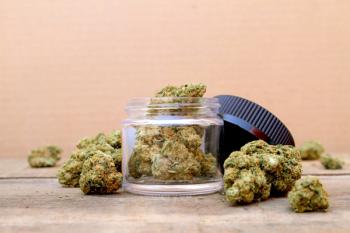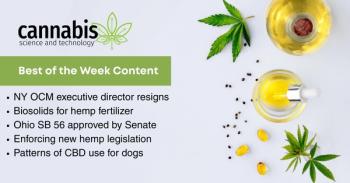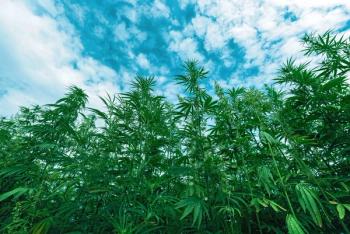
Cannabis Science and Technology
- January/February 2022
- Volume 5
- Issue 1
- Pages: 50-51
Mycology 101: Understanding Mold as a Threat in the Cannabis Industry
What is mycology and why is it important to the cannabis industry?
While people have been using cannabis for centuries, the modern safety practice of microbiology testing and consumer safety protocols for cannabis products has only come into play over the last decade in the US. And while there are many advocacy groups helping the population at large understand all the medicinal and adult use benefits of cannabis, there is extremely low awareness of the negative impact that poorly tested cannabis products can have on consumer and medical patient health.
When it comes to consumption and safety, what most consumers don’t know is that molds in cannabis can do harm. As with any agricultural product, there are points within the supply chain from seed to shelf that can present risk. The impact extends to brand reputation of the cannabis farmer, cultivator, and product manufacturer. The economics and public health issues can be highly damaging to the cannabis industry overall.
What Is Mycology and Why Is It Important to the Cannabis Industry?
Mycology is this study of fungi, which consists of yeasts, molds, and mushrooms. It includes the research of their morphological, genetic, biochemical properties, ecology, and taxonomy. In the case of crops such as cannabis, mycology helps explain the relationship between the cannabis plant with plant pathogenic fungi such as Fusarium, Botrytis, and some Penicillium species during growth and the relationship with fungal species such as Aspergillus contamination post-harvest and during storage. These groups of molds are the associated mycobiota. Harvest, storage, and curing are susceptible stages for cannabis crops, but infection can begin while the plant is alive.
What Is Mold and Why Do We Care?
For most, mold is instantly recognizable, as most people have discarded a piece of fruit or expired leftovers after immediately identifying the all-too-familiar fuzzy growth. Mold, loosely defined, is a growth of microscopic fungi on vegetable or animal matter covering surfaces as fluffy mycelia. Species of the genera Aspergillus, Penicillium, and Rhizopus are associated with cannabis plant diseases and stability after harvesting and storage. Some of their species are recognized as fungal pathogens not only for plants but also for humans.
Fungal pathogen presence, already a concern with those in the cannabis industry, will continue to be a critical issue as cannabis demand grows in the marketplace and both medical and adult-use cannabis become more commonplace. Some mold species are responsible for several serious respiratory illnesses, including aspergillosis. That threat is elevated for those who are immunocompromised and using cannabis for health conditions, including cancer.
Mold contamination can also wreak financial havoc, and can affect the entire supply chain, causing devastating losses of product. The economic implications alone can cause any cultivator to pause and reexamine the system in place. The investment up front in safety and quality measures is worth the risk of potential issues, including waste, further down the line.
Specifically, What Is Aspergillus?
Aspergillus is a type of mold or filamentous fungi. It can be found in cultivated soils, seeds, crops, and on decaying plant material and harvested crops. Aspergillus species can grow in a wide range of temperatures and spores are dispersed mainly through the air but can also grow in soil and other growth mediums.
Some Aspergillus species are used in the biotechnology industry. They produce citric acid, statins, and enzymes. They can be beneficial in that sense, but other types can be harmful and potentially very dangerous. Some of the species produce mycotoxins such as aflatoxin and ochratoxin, some are allergenic, and some of them certainly can cause invasive aspergillosis. Because of this, Aspergillus is one of the most dangerous cannabis pathogens.
Mitigating Risk
Preventive control measures during production and drying are imperative to ensure the absence of pathogenic Aspergillus spores. It has been documentedthat people can become sick just by exposure to the spores through handling cannabis and are even susceptible through secondhand smoke of cannabis as it can also contain dangerous spores of these pathogens.
Management of these fungal pathogens requires monitoring of the growth environment for Aspergillus spore levels and implementation of sanitation methods to reduce these levels and sources of contamination. Because cannabis can be grown hydroponically or in greenhouses, there is a little more control. The first step is implementing high quality growing practices. When a cultivator finishes a crop, each indoor room must be cleaned and sanitized before embarking on a new crop. Preventative measures also include lowering the relative humidity to less than 50% wherever possible and keeping the temperature low, around 70 °F or below, and avoiding condensation on surfaces.
Once the product is cut and is going to be dried, it is essential that the relative humidity and temperature is low. The faster it dries, the better. Additionally, it is important to protect the product from extreme conditions, such as rapid movement from cold to warm environments. This drastic change in temperature, which is common when transporting in non-environmentally controlled vehicles, can result in moisture condensation inside the bags, which may allow microbial regrowth.
What Can Be Done About It?
Proper testing is the answer. Cannabis must go through rigorous testing to determine the presence of fungal pathogens. To start, a test must be run for a total yeast and mold count. The best way to access the total count is through a validated, AOAC approved testing method. This allows cultivators and manufacturers to confidently assess total fungal population of their product to meet compliance requirements of state regulations and ensure accurate results.
Second, for specific pathogenic Aspergillus detection, a validated AOAC approved polymerase chain reaction (PCR) test is recommended since cultural methods require longer time and training of the technician on how to recognize these Aspergillus species. Using a method that cannot only detect Aspergillus but specify which of the four regulated pathogenic species is present, allows cultivators and manufacturers to make quick, data-driven decisions for their operation.
Closing
When it comes to mold, prevention of the contamination is key. Being prepared at the start of the process will significantly decrease the chances of defective product in the marketplace and the devastating economic and reputation losses suffered for a business. To determine if the product is contaminated by yeast and mold as well as the four Aspergillus species, choosing a validated AOAC PCR test that uses the right primers that are specific for Aspergillus species is essential.
About the Author
Dr. Emilia Rico is the founder and CEO of BCN Research Laboratories, Inc., in Rockford, Tennessee. She has more than 34 years of experience in food microbiology and mycology. She is also the co-founder and CEO of Universal Sanitizers and Supplies, Inc., and has 26 years of experience in the area of food and beverage sanitation. She is well known for her expertise in the area of spoilage investigation and prevention of beverage and high acid foods (preserved food and beverages, heat-processed beverages that are hot-filled or cold-filled: sport drinks, juices, drinks containing juices, teas, nutritionally enriched beverages, bottled waters, flavored waters); dairy products (milk, flavored milk, yogurt, cheese, cream); low and intermediate moisture food spoilage (baking products, cereal bars, confectionery, jellies, preserves, pet foods and treats); as well as for expertise in food safety and sanitation. She is frequently invited as a speaker on food and beverage spoilage, food safety, and sanitation. Since 2003, Dr. Emilia Rico has been an active member of the prestigious 15-member International Commission in Food Mycology (ICFM) of the International Union of Microbiological Societies (IUMS) (www.foodmycology.org). As a member of the ICFM, she participates in IUMS-ICFM symposia, workshops and outreach programs in developing countries such as Indonesia.
How to Cite this Article
E. Rico, Cannabis Science and Technology 5(1), 50-51 (2022).
Articles in this issue
almost 4 years ago
In Search of the Golden Potency Methodalmost 4 years ago
How Are Tetrahydrocannabinol—THC—Isomers Entering the Market?almost 4 years ago
Cannabis Research Is Cannabis Sciencealmost 4 years ago
Autoflowering Genetics Present Unique Opportunitiesalmost 4 years ago
How Does Carbon Dioxide Enrichment Affect Environmental Control?Newsletter
Unlock the latest breakthroughs in cannabis science—subscribe now to get expert insights, research, and industry updates delivered to your inbox.




